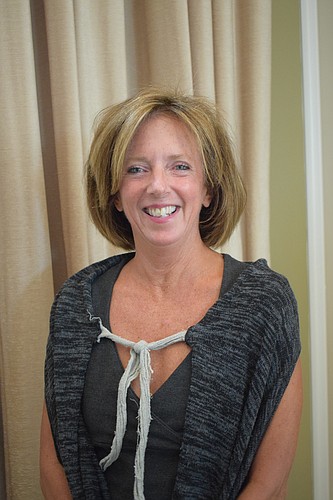- January 14, 2025
-
-
Loading

Loading

At a special LWR Talks at Lakewood Ranch Golf and Country Club in May, neuropsychologist Stephanie Peabody repeated her contention the planned Brain Health Study at Lakewood Ranch could be as significant as the Framingham Heart Study.
That could cause local residents — who have been asked to participate in the brain study and to give it their support — to ponder what the heart study, which began in 1948 and continues today, meant to Framingham, Mass.
The answer, according to today's Framingham residents, wasn't so much about increased medical facilities, jobs or a more thriving local economy.
The payoff was a healthy community.
Greta Lee Splansky, the Director of Operations at the Framingham Heart Study for Boston University, said the heart study focused on its namesake town, situated about 20 miles west of Boston. The study began in 1948 and still runs today, 71 years later.
As explained in a 2001 article from the local paper, The MetroWest Daily News, the heart study is now on its third generation of participants.
But while the findings have had worldwide implications, Splansky said it made a tremendous impact on the residents of the town where it was born.
“It attracted, good doctors to the area," she said, adding that doctors sent the information they gathered from participants to the participants' primary physicians. “The medical community here was sophisticated and stimulated by the presence of the study."
She said little impact in terms of brick-and-mortar businesses coming to a town tied directly to the study. Nevertheless, the town's workforce, as a whole, said its overall health improve.
Framingham did see a population explosion in the '50s and '60s as people sought to move out from Boston and buy homes in the suburbs. “All of that would have happened with or without the Framingham Heart Study,” Splansky said.
Annie Murphy, director of the Framingham History Center, agreed that businesses moved to Framingham regardless of the heart study.
However, she said, it still bolstered the economy through feeding the workforce healthy employees.
"It had a huge impact on the community," she said. "A healthier community makes a better working community.”
The study is known for its scientific findings such as how cigarettes, high blood pressure and increased cholesterol increase risk of heart disease and how high blood pressure increases stroke risk. Those local residents participating in the study always have been privy to the findings before the general public.
Peabody sees Lakewood Ranch reaping the same health-related benefits, and more.
At that top of the list though is how society in general will benefit from the brain study.
Peabody, the founding director of the Academy for Brain Health and Performance and who is overseeing the Lakewood Ranch study, said our awareness of the steps to improve brain health and performance is “at least a generation behind that of heart health.”
“When our grandparents died of a heart attack or stroke, we understood it to be a part of getting older," she said of our society before the Framingham Heart Study began. "Blocked arteries, high blood pressure and high cholesterol were considered a normal part of aging before 1948.
"Compared to the heart and other organs in the body, relatively little is known about the factors that shape brain health and optimize daily performance of the brain.”
She called the ability to head the Brain Health Study at Lakewood Ranch "simply a privilege."
The Brain Health Study at Lakewood Ranch is closing on its initial $1.6 million funding goal, Peabody said. Upon reaching that goal, her team will be able to plan for the pilot study they hope to launch in May 2020.
Future funding for the study will come from in-kind support, donations from businesses and collaborations with other universities, Peabody said, as well as relationships between the study and other organizations and obtaining grants.
However, while current-day residents of Framingham said the heart study wasn't an economic boon to the town in terms of measurable assets, Peabody believes Lakewood Ranch will have a quantitative economic impact beyond a healthier community.
One of the first, she said, could be a planned space in the CORE (Collaboration Opportunities for Research and Exploration) project in Lakewood Ranch. That could entice others interested in the study.
“We imagine — based on the enthusiasm and visibility our research and innovation lab will generate locally, nationally and internationally — that, for example, brain health stakeholders, including neuro-technology innovators scholars and academic institutions, businesses and investors with whom we collaborate…would be motivated to come to CORE,” Peabody said.
However, she said the economic impact does not stop there.
“The economic impact will be a ripple effect throughout the Gulf Coast region, and, hopefully, well beyond,” Peabody said.
In 10 years, Peabody said she can see the study working with its first generation of participants and expanding to studies in other areas of southwest Florida. Moreover, she said, she could see places like grocery stores having brain healthy shopping lists or restaurants having a brain healthy menu.
“Our boundaries are only really established by resource, interest and creativity,” she said.
Peabody also has a specific goal in mind.
“Success would be a universal understanding of what brain health is,” she said.